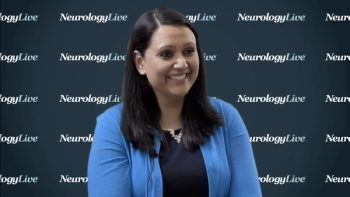
The director of the MedStar Georgetown Headache Center spoke about the higher-than-desired rates of opioid prescriptions for patients with migraine, and how new treatment options and provider education can help lower those numbers.

The director of the MedStar Georgetown Headache Center spoke about the higher-than-desired rates of opioid prescriptions for patients with migraine, and how new treatment options and provider education can help lower those numbers.

At the recent American Headache Society meeting, researchers detailed the manifold risks of opioid use in patients with migraine.
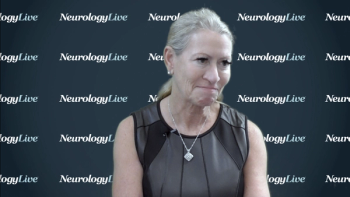
The director of the Orange County Migraine and Headache Center spoke about the adherence issues in acute migraine treatment and how the safety profile of investigational medications such as rimegepant and ubrogepant suggests they may be able to address them.

Lead author Elizabeth K. Seng, PhD, shared insight into the findings of an exploration of the use of mindfulness-based cognitive therapy to reduce the impact of migraine on patients, as measured by Migraine Disability Assessment, as well as Headache Disability Inventory scores.

The International Congress on the Future of Neurology will take place this Fall in New York City, converging experts in neurology to discuss the latest data and best practices to better inform clinical decision-making.

Investigators found that participants struggled to adhere to the treatment protocol, which required them to administer 3 treatments per day.

The director of headache medicine and chief of general neurology at Yale Medicine spoke about the significance of having CGRP inhibitors in migraine treatment, and how eptinezumab fits into the treatment landscape.

No differences were observed in the magnitude of ubrogepant treatment effect between defined triptan subgroups.
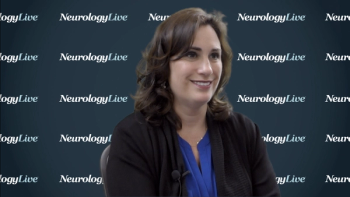
The clinical professor of neurology at Albert Einstein College of Medicine spoke about the trends revealed by the OVERCOME study, and how this data can be used to improve the management of the millions of patients with migraine in the US.
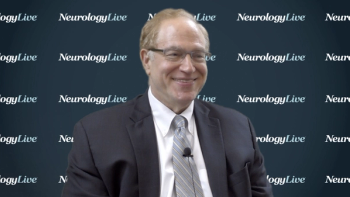
The director of the Montefiore Headache Center and professor of neurology at Albert Einstein College of Medicine spoke about the results of an analysis of eptinezumab’s effect on the severity of migraine and its impact on patients’ lives.

Atogepant significantly reduced mean monthly migraine days compared to placebo across a number of doses and was generally well-tolerated, with no treatment-related serious adverse events.

Real-world data of erenumab indicates that a large number of patients are the chronic migraine population, and there is a high rate of persistence to the anti-CGRP therapy. The most commonly prescribed dose of erenumab was 70 mg.

Patients with migraine who reported both moderate and severe pain intensity during headache attacks experienced high rates of relief and freedom from pain and their most bothersome symptom when treated with 3-mg sumatriptan injection, DFN-11.

An analysis of the open-label PREVAIL trial demonstrated a magnitude of therapeutic effect for eptinezumab that was either maintained or improved with subsequent infusions.
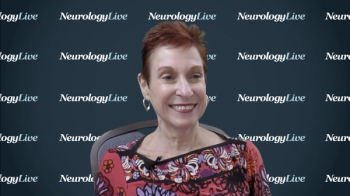
The professor of neurology, neurotherapeutics, and ophthalmology at UT Southwestern spoke about the potential of telemedicine in headache medicine, as well as the findings from a single-center, 45-patient study.

Despite ongoing discussion regarding the 6-item Headache Impact Test’s relevance in the migraine population—for which it was not specifically developed—the test has been shown to be a useful tool in the assessment of patients with migraine.

The director of the MedStar Georgetown Headache Center spoke about ubrogepant’s long-term safety and efficacy and its potential to fill the large gap that remains in acute migraine care.

Patients with migraine rated their telemedicine visits as more convenient with shorter visit times; two factors that can also benefit providers.

Survey data revealed 36% of patients with migraine with prescription medications were using opioids in acute management, though data also reinforced that receiving a diagnosis of migraine or chronic migraine was associated with a significantly decreased likelihood of opioid use.

As measured with the Migraine Disability Assessment, the proportion of patients with episodic migraine experiencing severe disability was reduced significantly, and Headache Disability Inventory scores were significantly reduced.

Almost 20% of rimegepant-treated patients experienced pain freedom within 2 hours of receiving a 75-mg dose compared to the placebo group, in which 12% were pain-free at 2 hours.

Both the frequency of headache days and the intake of acute medication were decreased with the use of a daily, single 20-minute eTNS session over the course of 3 months in an open-label, monocenter, prospective pilot trial.

Stephen D. Silberstein, MD, past AHS president and Editor in Chief of NeurologyLive, provides a preview of premier sessions that will take place at the upcoming annual meeting.

Physicians should ask patients about their history of headaches and monitor for possible indicators of stroke, especially among older individuals who are already at increased risk.
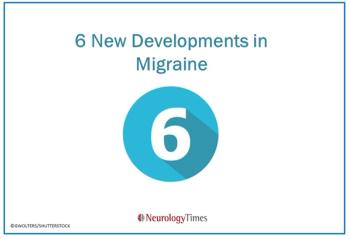
Food insecurity and migraine, anxiety sensitivity and migraine severity, supraorbital stimulation to prevent chronic migraine-find summaries of these and other recent findings here.